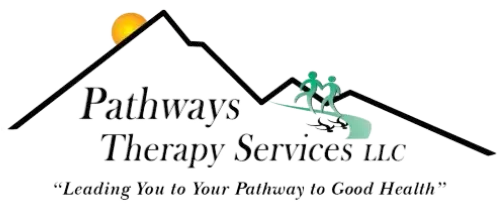
Asking for help with a medical problem is not only a good thing but often a crucial step in maintaining one’s health and well-being. Here are several compelling reasons why seeking assistance for a medical issue is beneficial:
Early Detection and Treatment: Many medical conditions, such as cancer and cardiovascular diseases, are more effectively treated when detected in their early stages. Seeking help promptly increases the chances of early diagnosis and intervention.
Expertise: Medical professionals, including doctors, nurses, and specialists, have the knowledge and experience to accurately diagnose and treat various health issues. They can provide the proper guidance and treatment options.
Preventing Worsening of Conditions: Neglecting a medical problem can lead to worsening symptoms or developing complications. Seeking help can prevent these situations.
Professional Advice: Medical professionals can offer tailored advice and treatment plans, considering an individual’s unique health history, lifestyle, and preferences.
Access to Advanced Technology: Healthcare providers have access to state-of-the-art diagnostic tools and equipment that can help precisely identify medical issues.
Prescription Medications: Many medical conditions require prescription medications for treatment. A healthcare professional can only provide these, and their proper use can be crucial for recovery.
Psychological Support: Medical problems can be emotionally and mentally challenging. Healthcare professionals can provide emotional support and connect patients with mental health services.
Prevention and Health Education: Seeking help allows individuals to receive valuable information about preventing health problems, managing chronic conditions, and making lifestyle changes that promote better health.
Legal and Insurance Implications: Some medical issues may have legal or insurance ramifications. Seeking professional help and documenting medical conditions can be essential for legal and insurance purposes.
Validation and Peace of Mind: Consulting with a medical professional can provide a sense of validation for your concerns and symptoms. It can also provide peace of mind, knowing you are doing what’s necessary to address your health issue.
Timely Referrals: In cases where the issue requires specialized care, a healthcare provider can refer specialists with expertise in a particular field.
Compliance with Medical Regulations: In some regions, certain medical conditions must be reported to authorities to prevent spreading infectious diseases. Seeking help ensures compliance with such regulations.
Community Health: Seeking help for certain conditions can contribute to public health by preventing the spread of contagious diseases and ensuring individuals receive appropriate vaccinations.
Family and Social Support: Seeking medical help can be the first step in mobilizing the support of friends and family. It’s often easier to rally support when a professional diagnosis and treatment plan is in place.
Quality of Life: Addressing medical problems can significantly improve a person’s quality of life, allowing them to continue their daily activities and maintain independence.
In summary, asking for help with a medical problem is not just a good thing but an essential step in managing one’s health. It can lead to early detection, timely treatment, and better well-being. Feel free to consult a healthcare professional when you have concerns about your health.
Now accept the help you sought out in the first place.
Accepting help for a medical problem is equally as important as seeking it in the first place. Here are reasons why accepting help is crucial:
Effective Treatment: Accepting help means following the treatment plan and advice provided by medical professionals. This adherence to treatment is essential for the effectiveness of therapies and medications.
Faster Recovery: Compliance with medical recommendations and prescribed treatment can lead to a quicker recovery. Ignoring or resisting help may prolong the healing process.
Preventing Complications: Many medical conditions can lead to complications when left untreated or when treatment is not followed. Accepting help reduces the risk of such complications.
Optimal Management of Chronic Conditions: For individuals with chronic conditions, accepting help ensures they receive the necessary care and guidance for managing their health in the long term.
Avoiding Self-Diagnosis and Self-Medication: Accepting helps discourage self-diagnosis and self-medication, which can be inaccurate and potentially harmful. Medical professionals can accurately diagnose and prescribe appropriate treatments.
Emotional and Mental Well-being: Accepting help can alleviate the emotional and mental burden associated with medical problems. Knowing you have support and following a well-defined plan can reduce anxiety and stress.
Family and Social Support: Accepting help often involves informing and involving family and friends in your healthcare journey. Their support and understanding can be invaluable during challenging times.
Safety: In some cases, accepting help ensures the safety of the individual and those around them. For instance, someone with a contagious disease who receives medical guidance can prevent the spread of the illness.
Legal and Insurance Compliance: Accepting help and following medical advice can also ensure compliance with legal requirements and insurance policies, which can have long-term implications.
Improving Quality of Life: By accepting help, individuals can regain their ability to engage in daily activities and maintain their quality of life. It can prevent a decline in overall well-being.
Trust in the Healthcare System: Accepting help reinforces trust in the healthcare system, providers, and the medical process. Trust is essential for effective patient-doctor relationships.
Preventing Self-Neglect: Refusing help may result in self-neglect or denial of the severity of a medical problem, which can lead to a deterioration of health.
Community Health: Accepting help is a responsible and ethical choice, especially in cases where contagious diseases are involved. It protects the well-being of the broader community by preventing the spread of illness.
Health Education: Accepting help involves a learning process where individuals can gain valuable health education and knowledge about their condition, helping them make informed decisions about their health.
Peace of Mind: Accepting help can provide peace of mind, knowing that you are taking active steps to address your medical problem. This can relieve anxiety and stress associated with uncertainty.
In conclusion, accepting help for a medical problem is vital for your own well-being, the effectiveness of treatment, and the broader community’s health. It’s not just about seeking help but also about embracing it, following the guidance provided, and actively participating in your recovery or managing health issues.


